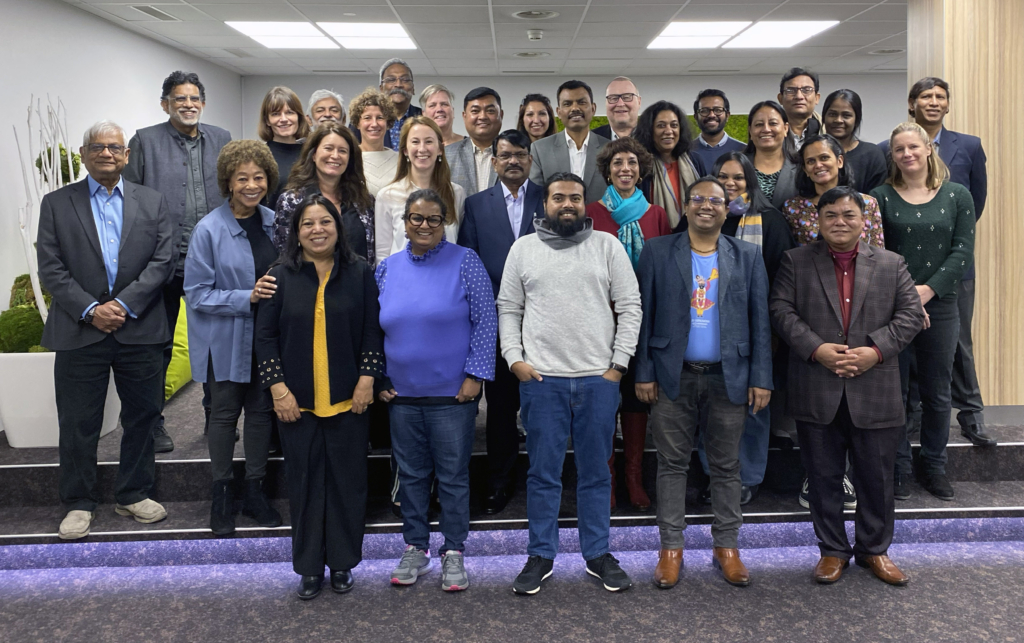Perspectives, ideas, insights and engagement filled the room as representatives from IDSN’s member organisations and international associates from across the globe gathered for a two-day general assembly meeting in Geneva on 24-25 November.
The meetings kicked off with presentations on the work, triumphs and challenges from all IDSN’s members from countries affected by caste in South Asia as well as Dalit Solidarity Networks in Europe. The presentations were a testament to the fantastic work being done by the IDSN membership to combat caste discrimination often in the face of formidable obstacles.
The General Assembly members reviewed and approved IDSN’s upcoming strategy from 2024-2030 and in workshops discussed and charted out ways to make effective progress under the strategic themes – caste and gender justice and caste, business and human rights. One group also looked at how to catalyse international solidarity to increase support to Dalit human rights defenders. The workshops yielded new ideas, including on how to better engage youth in the work and paved the way for designing a solid implementation plan for the new IDSN strategy.
IDSN’s EU and UN advisers presented on IDSN’s advocacy work and had interactive Q&As with the members to gather feedback and perspectives on how to best take this work forward in the coming strategy period.
A session on the Asia Dalit Rights Forum looked into synergies in future ways of working together with IDSN while a session on international solidarity looked at how IDSN’s international associates such as Human Rights Watch, Forum Asia, IMADR and many others could be drawn upon to support the work of IDSN.
The network was also joined by special guests including IDSN Ambassador Gay McDougall, Member of the UN CERD Committee and the first ever Special Rapporteur on Minority Issues, Miloon Kothari previously UN Special Rapporteur on Housing and founding member of the Working Group on Human Rights in India as well as Michele Buteau, of the UN OHCHR Minority Section, who has worked with IDSN for many years. They offered great advice and support for IDSN in taking the work forward over the coming years.
Board elections were held, as a great deal of IDSN’s board members had come to the end of their terms, and many fresh faces were elected to the IDSN board while thanks was given to the outgoing board members for their extensive contributions to IDSN over the course of their terms on the board. The new board is made up of 60 percent Dalit leaders from the South Asia and out of ten Board members, eight Board members are women and seven Board members are from the Global South.
The 20th anniversary of IDSN was also celebrated by all at a small reception and marked with illustrations of IDSN’s many achievements over the years.
Participants left Geneva with renewed inspiration and a common framework from which to continue the work for a world free of caste discrimination.

